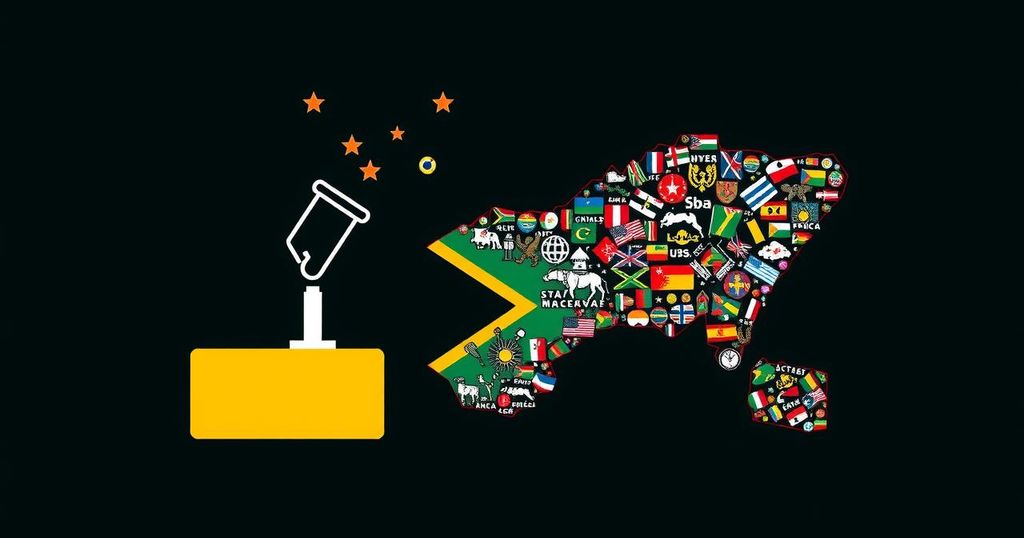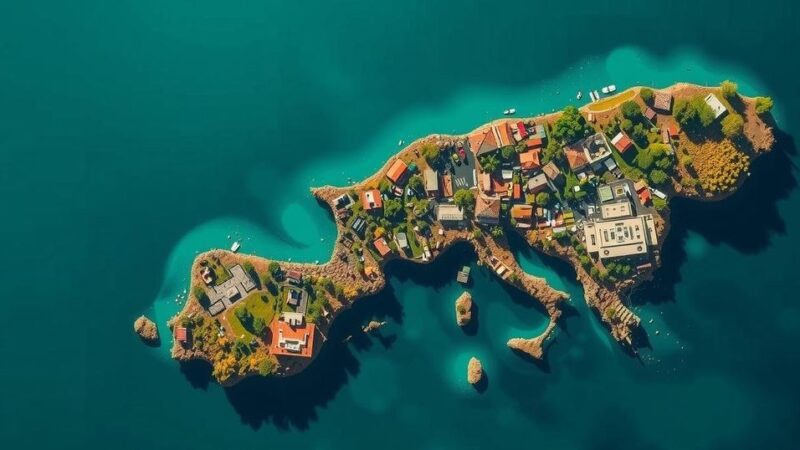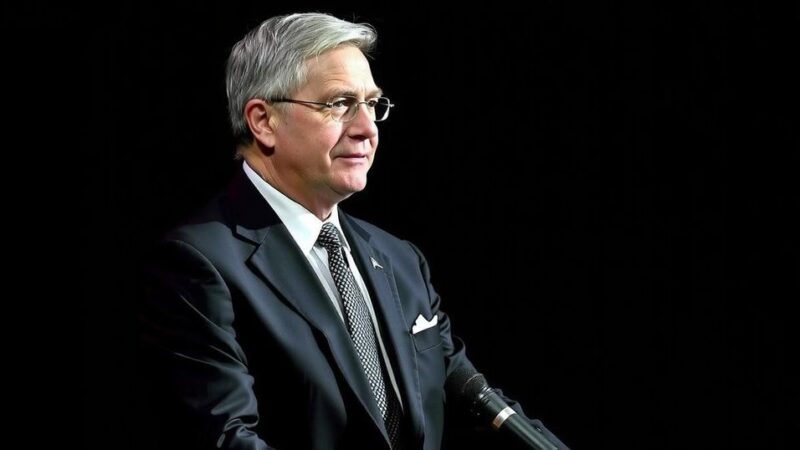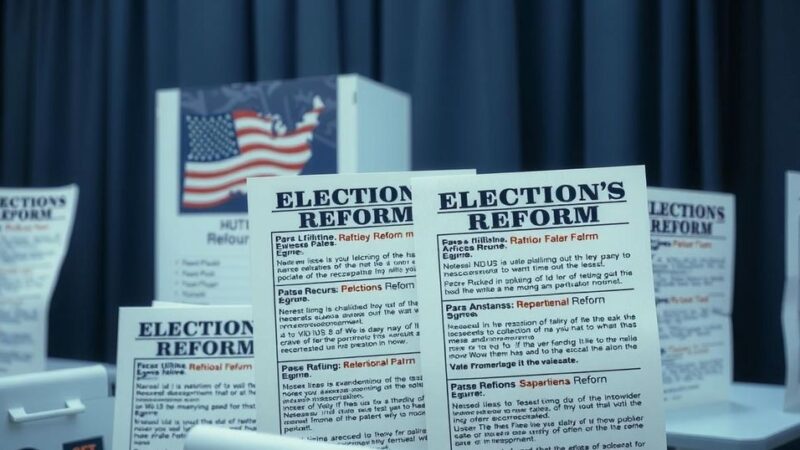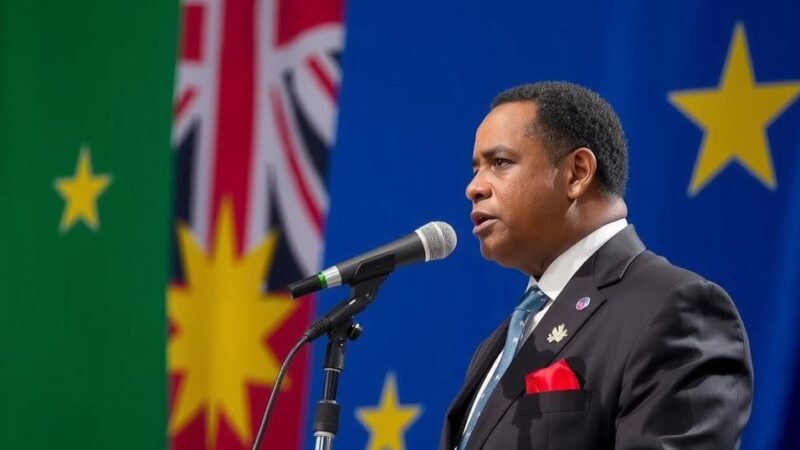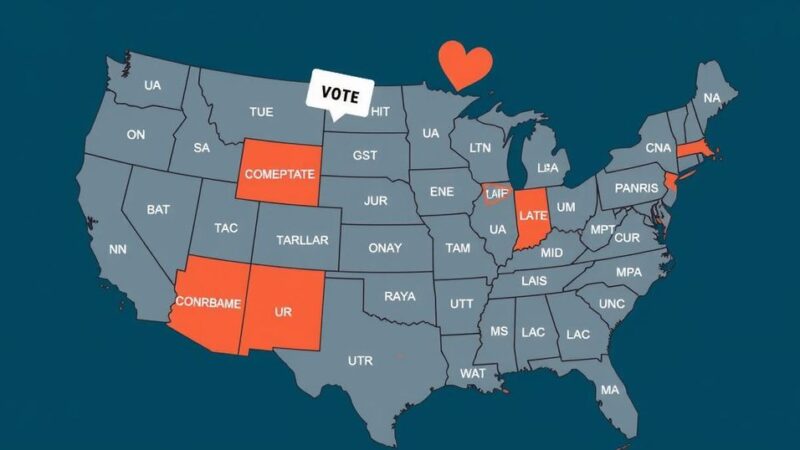The EFF party’s response to the U.S. election led to misleading claims regarding American imperialism and involvement in Congolese conflicts. Their assertions misrepresent U.S. actions aimed at curbing illegal resource exploitation while disregarding the roles of neighboring states in the ongoing crisis.
The recent reaction from South Africa’s far-left Economic Freedom Fighters (EFF) party to the U.S. presidential election results was marked by misleading assertions pertaining to the U.S.’s role in alleged destabilization in the Democratic Republic of the Congo (DRC). Despite claiming indifference to the electoral outcome, the EFF’s statement characterized U.S. politics as imperialistic and reiterated unsubstantiated claims about U.S. involvement in the 1961 assassination of Congolese leader Patrice Lumumba. Moreover, the EFF accused the U.S. of benefitting from the ongoing conflict in the DRC, which has resulted in severe humanitarian repercussions, including the displacement of over 7 million individuals. This narrative oversimplifies the complex geopolitical dynamics at play, particularly the systemic issues of illegal mining and resource exploitation in Congo. The U.S. has taken significant steps to prevent conflict minerals from entering its markets, such as the Dodd Frank Act, which mandates diligence from publicly listed companies regarding their mineral supply chains. U.S. government actions tend to contradict the EFF’s claims, as they have imposed sanctions against militia groups involved in illegal mining. Moreover, allegations of Rwanda and Uganda pilfering Congolese resources through militaristic means further complicate the wider narrative about foreign exploitation. The allegations leveled by the EFF reflect not only a divergence from factual accuracy but also a broader trend among critics in Africa questioning the legitimacy of U.S. democracy and policies. Given the extensive documented evidence of the U.S.’s stance against violence in Congo, the accusations made by the EFF appear unfounded and politically inspired, seeking to cast the U.S. as a colonial aggressor rather than a partner in promoting stability in the region.
The Economic Freedom Fighters (EFF) party, founded by Julius Malema, has gained notoriety for its radical positions and incendiary rhetoric. In light of Donald Trump’s victory in the 2023 U.S. elections, the party released a statement that not only dismissed the legitimacy of U.S. democracy but also perpetuated unfounded notions regarding U.S. involvement in Congolese affairs. The DRC has been embroiled in conflict over natural resources, leading to widespread displacement and humanitarian crises, a topic of deep concern for analysts and observers alike. Recent U.S. legislation aimed at curbing the illegal trade of conflict minerals illustrates the complexity of U.S. engagement in African political landscapes, challenging simplistic narratives propagated by some political factions.
The EFF’s reaction to the U.S. election results demonstrates a troubling tendency to distort complex geopolitical realities for political gain. Their assertions regarding U.S. exploitation in the DRC misrepresent both the nature of U.S. policies and the involvement of other regional players, particularly Rwanda and Uganda, in perpetuating conflict. A nuanced understanding of these dynamics is essential for accurately assessing the intersection of U.S. foreign policy and African resource challenges.
Original Source: www.voanews.com
